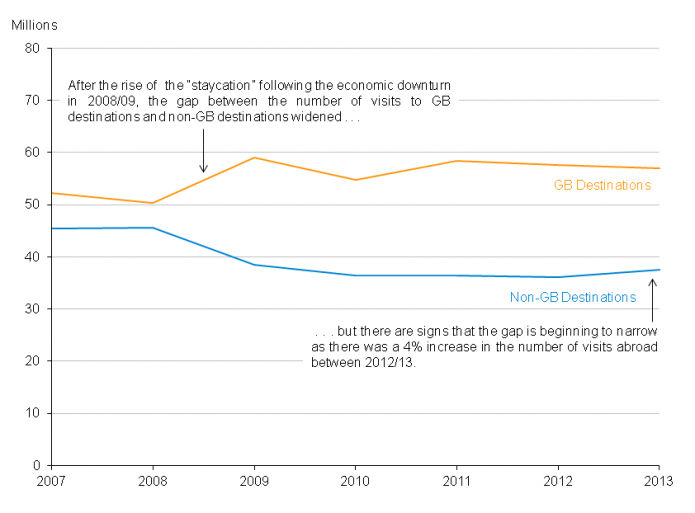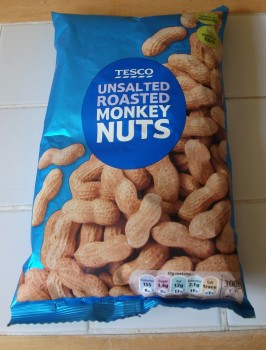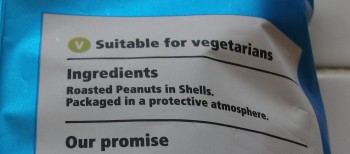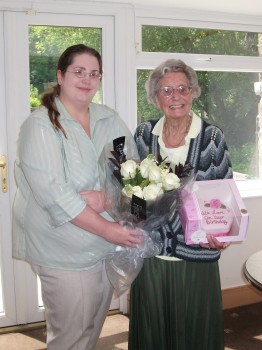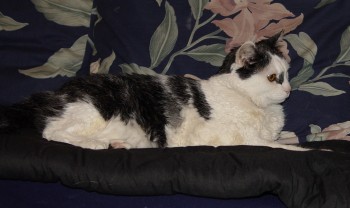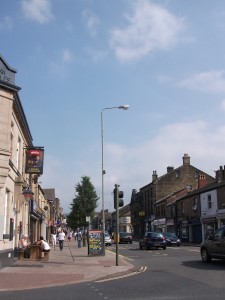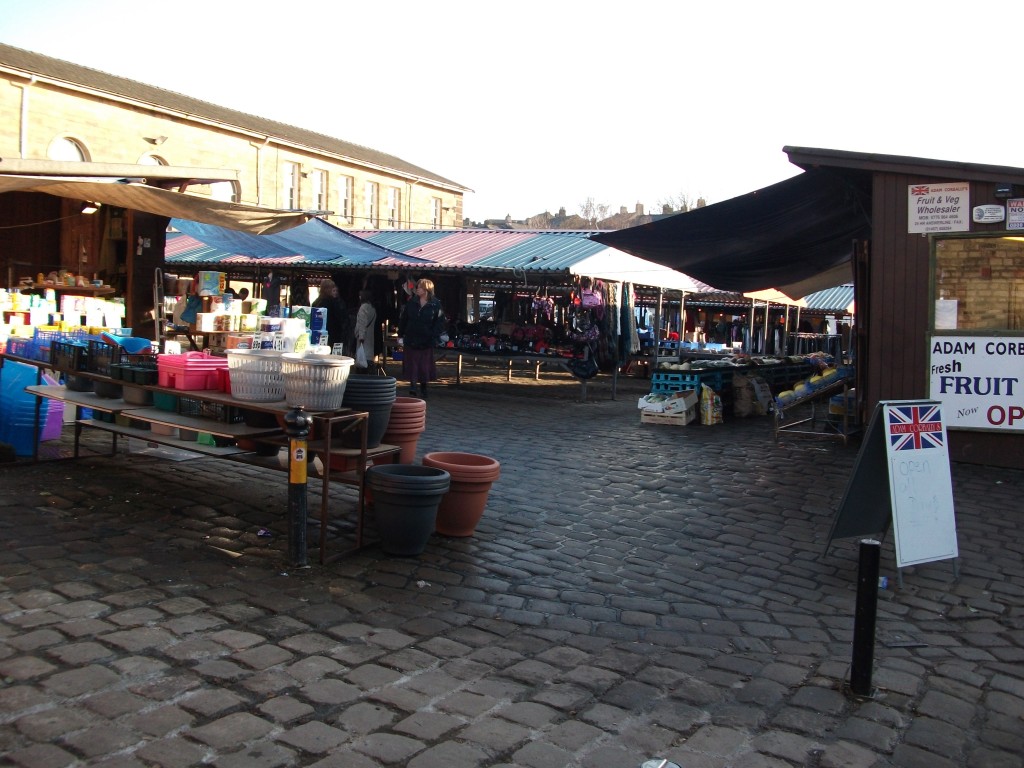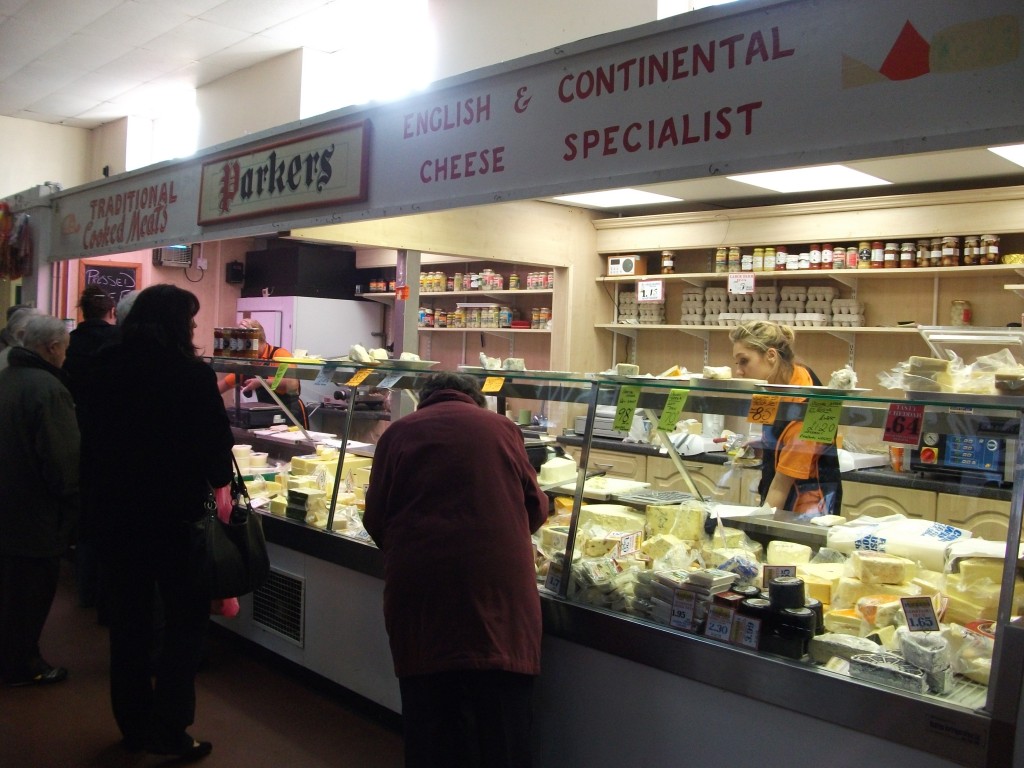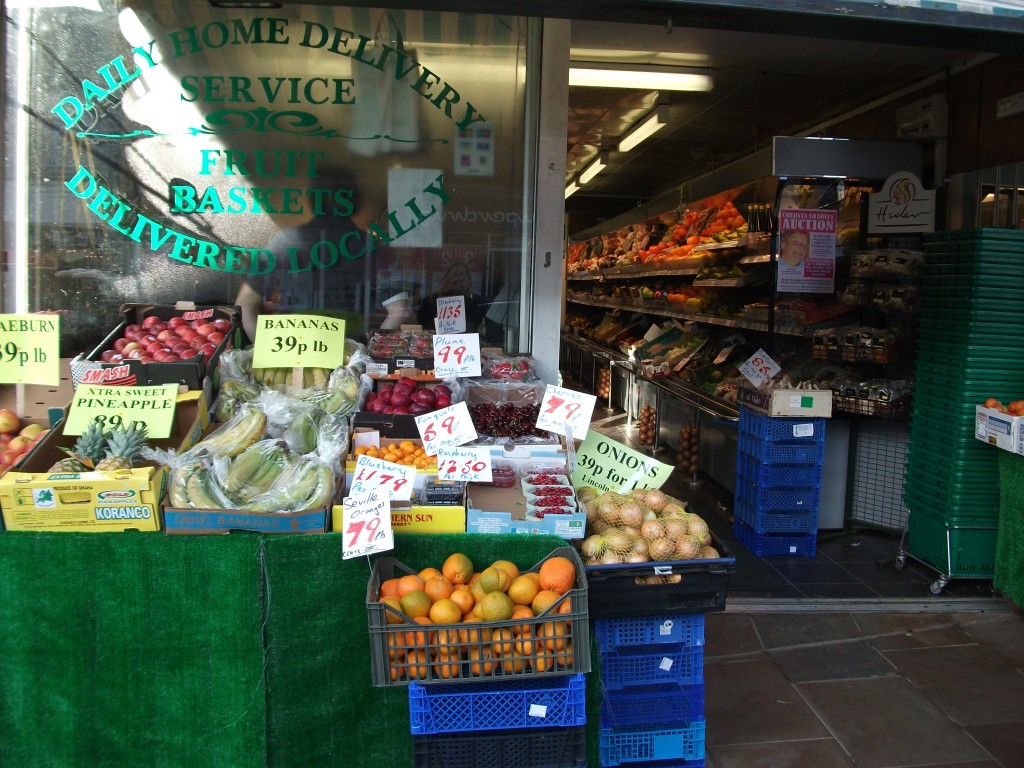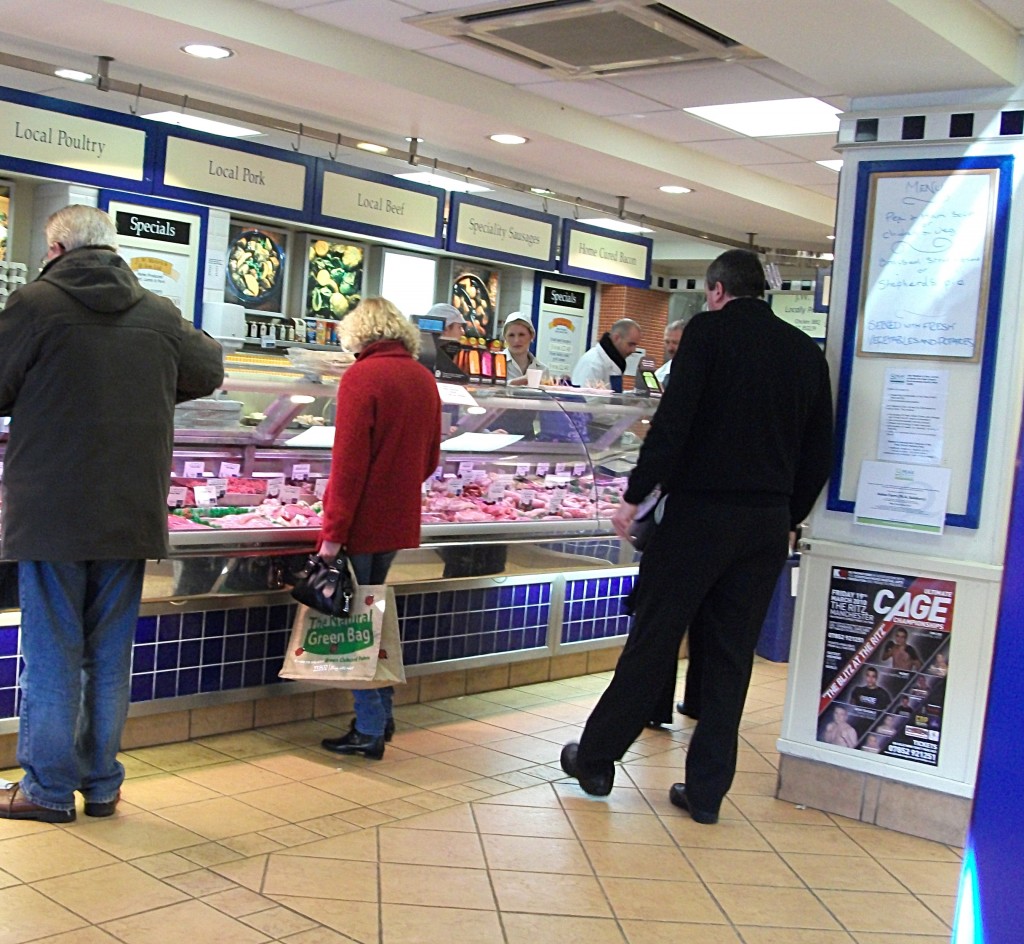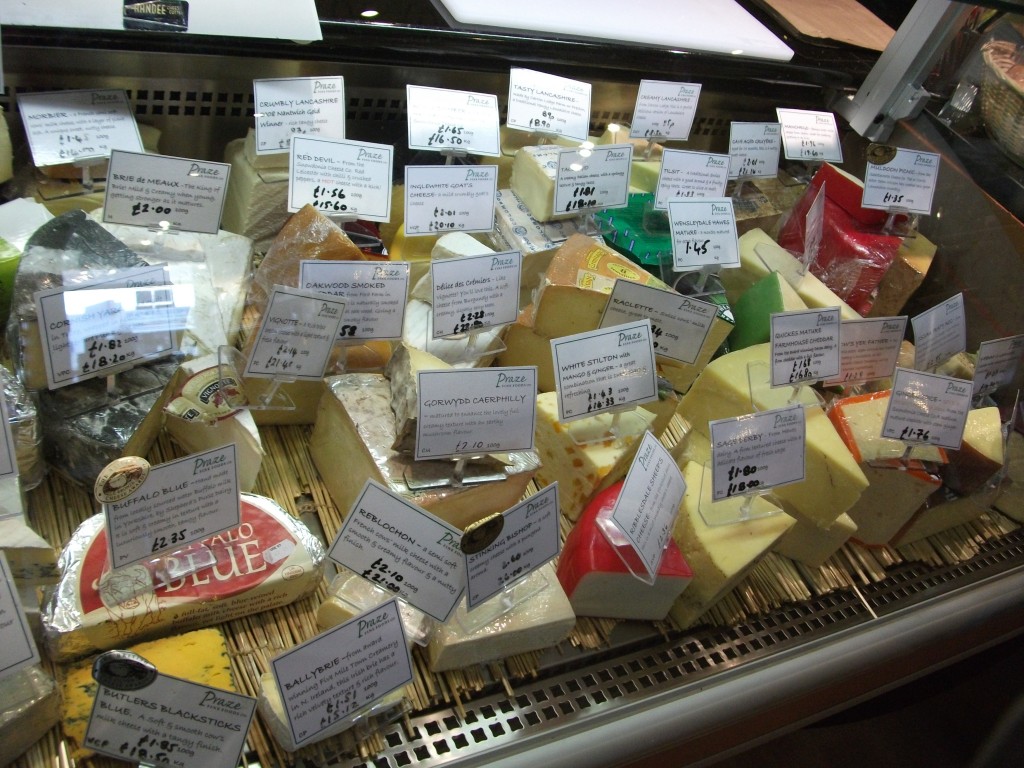I’d thought today’s WI meeting would be very hard. I had to go, though: my strongest memory of Phyllis is of her shaking her finger at me and telling me that I mustn’t miss any more meetings, after I’d missed a few in a row following some unpleasantness a few years back. That meant the world to me – knowing that, despite the unpleasantness, and my fear that my adversary had poisoned my friends and acquaintances against me, in fact I was still liked and my company was still desired by some, at least. Since then, I’ve fitted back in, and it’s a rare meeting where I get a chance to visit with everyone I’d like to. It’s a feeling of belonging, which has been entirely too rare in my life. I shouldn’t treat it lightly, and such things need nurturing. No, I shouldn’t miss these meetings willy-nilly.
So, off I went this morning – after a too-short night, as is almost always the case on these WI Days. I was interested to hear the speaker, as well as wanting to see my friends. His talk was entitled “An Amish Experience,” and since I know very little about the Amish, this promised to be informative and interesting. (I always love learning – not school with its tests and stupidity, but learning for its own sake.)
After setting up his slides (actual slides, not a powerpoint presentation), our speaker began. He explained that his daughter’s lived in America for a number of years, and when she lived an hour’s drive away, they went to visit Amish country as an afternoon out. After she moved to upstate New York, his sister went with him to visit once, and she wanted to see Amish country – now some 300-odd miles away, so “not an afternoon job.” (He said the actual number, but I forget it now.) Then he told us about that trip down to Amish country – they stayed three nights – and showed us photos. Many of the photos came from post cards and brochures, so I imagine they were actors, but it gives you something to show what it’s like, so fair enough.
I’d arrived last, and grabbed a chair at the back of the room. Our speaker stood up and faced us at the beginning, to give the prologue, but the room’s situated such that any sort of projector needs to be placed about halfway back, in the midst of the crowd, so speakers often end up sitting there, facing the front, to change the slides. Thus, he couldn’t see my face; mercifully, I didn’t need to try to keep a poker face – always an incredible challenge for me. My face is incredibly expressive (it always has been), which is a blessing and a curse, like most things in life. It’s a blessing in that I don’t have to find the words to convey so very many things: sorrow, sympathy, glee, pleasure; the whole lot. It’s a curse because I give away what I’m thinking right there on my face, which is sometimes troublesome. Ho hum, it’s part of me, and always shall remain so, I imagine.
So he started to talk about their trip. He said 300-odd miles is a long way, so he rented one of these people-carriers for it: a seven-seater, with three rows of seats. He showed us a photo of a minivan. Finally! I’ve always wondered what the heck Which? has been calling a people-carrier or MPV (multi-person vehicle) — silly me, I thought that was basically anything other than a small motorcycle — and now I finally know! Anyway, so he and his daughter swapped the driving, and they rode up front*; his wife had one row of seats to herself, and his sister had another row of seats to herself. Because 300-odd miles is a long way.
(*My parents took us on many road trips when we were growing up, and they remain part of the fabric that is me: one of my great loves. I see the eminent sensibility in their system, though, that if you can arrange it, put the driver who’s resting in the back, as far away from being able to watch the road as you can. I find myself doing the same that they did way back then: when I’m not driving, I find myself watching the road just the same as when I am. Means you get no mental rest from driving if your off time is in the front passenger seat. This system of my parents’ also meant us kids learned how to read road maps early and well, so I advocate it to all.)
Three hundred-odd miles is a long way in Britain, mind: the congestion and crowding makes travel here massively more exhausting than the same distances in the US. Three hundred miles here would surely be a very long, hard day – akin to those crazy people I occassionally checked in to my hotels who’d made it 1000 miles in a single day. I’m gently mocking, however, because the speaker obviously discovered the difference himself: he put up a view of the road and said, “I’ve only put this one in to make you jealous. When was the last time you saw a British motorway with only one other car in sight?” About 1950, I imagine, if motorways (interstates, kind of) even existed then. I’ve always tried to tell my friends and family that driving in the US is vastly different from driving in the UK. I think the only ones who’ve understood have been the ones who’ve done both.
Anyway, our speaker went on to tell us that the speed limit was 65mph, and he dared not exceed it – it’s enforced by aircraft, radar, etc. Signs positively litter the highways in that part of the country warning about aircraft-controlled and radar-controlled speed limits, which are actually worded quite silly so always made Chris and I laugh. Our speaker told us that when a cop pulls you over in America, the first thing they do is get out of their car and get their gun out! So he would only go 63 or 64; he wasn’t keen to argue with a cop and his gun. His daughter would push it, having discovered that a smile and a British accent go a long way. “They love us there; we’re their biggest allies.”
I’m afraid my eyes rolled so hard they fell on the floor when he told us that American cops pull their gun on every speeding car they pull over. I swear I have a magnet inside me that makes cops catch me every time I speed – so I don’t anymore, but in my younger days I got pulled over quite a bit. Y’know, I’ve never had a single gun pulled on me. Methinks the speaker has been watching too many episodes of COPS.
It was about this time that the ladies around me realized that, as they announced loudly later, watching me was more entertaining than watching the slides, and they proceeded to do so, telling the others around them (who couldn’t see me) what expressions I’d made. At one point I had to shush them and tell them to let the man talk!
So the man carried on, choosing to not be bothered at all by the ruckus behind him. It was interesting to see how much gets misinterpreted. He thought the motel they’d stayed in was quite sizeable because the parking lot photo he’d taken showed a parking space numbered 122. Brits are used to numbering from 1, rather than the coded system Americans are used to, with a block number prefixing the house number, or a floor number prefixing a room number. Room 122 in an American motel is likely to be the 22nd room (or 21st, if they’ve skipped 13) on the ground floor, and this was just one story high; from what I could see in the photo, 20-odd rooms looked about right to my somewhat-practiced eye. I remember the hotel in Cardiff last year had what I’ve just called American coding of room numbers (floor number plus room number, so room 122 would be the 22nd room on the first floor), but I think they don’t expect that coding when it’s all on one floor, probably because the ground floor isn’t the first floor, it’s floor zero. The first floor is one above the ground floor.
He also believed the horses and buggies had their own lane on the main roads through Lancaster County, Pennsylvania, saying they’re like the bicycle lanes we get here. Actually, that was the shoulder. The road markings are different: the solid white line at the edge of the road in the US always means it’s the edge of the road, it has a variety of different meanings here – like that demarcation of the cycle lane.
He also didn’t understand that the orange triangles on the backs of these buggies are a general requirement for slow-moving vehicles in many states, including things like motorized farm tractors; the state law mandating it wasn’t necessarily put in place specifically for these buggies.
Despite these few misunderstandings, he had a lot of interesting, informative stories and facts to share with us about the Amish, and was a good, engaging speaker, so I do highly recommend him and won’t spoil his talk by telling you what all he said, in case you’re a local reading this who might want him to come to your group. During the meat of his talk, thankfully I quit being so entertaining, and the others focused on him.
Towards the end, though, he told us of getting some pies from the farmers’ market just before they headed back out again. One was “just plain apple” and one was strawberry and rhubarb, and he’s never found that combination so good ever since. I was surprised the apple pie was plain – that’s the British way, not the American way (Americans tend to bake in cinnamon, for a start), but perhaps it did have the usual spices and he simply glossed over that point. He then told us that, though the Americans seem so forward in so many ways, they’ve never heard of custard!, which is what he likes to have with his apple pie. Of course, we have heard of custard – we call it pudding, and it is delicious. Most of us, thankfully, haven’t heard of the foul yellow goop he’s talking about, which bears absolutely no resemblance to custard. I never call it custard; I always refer to its brand name, Bird’s, because that’s what it is. It’s mixed from a powder that comes in an envelope labeled Bird’s, and that’s all we can really be sure of. His daughter had a large supermarket near her with an entire aisle given over to the “Best of British” food, though, where she’d found this abomination. My face was wrinkled with absolute disgust the entire time (not too long) he spoke about that strange yellow concoction, to much hooting laughter from those around me.
On that supermarket aisle, the daughter had also found Yorkshire Tea, and was grateful for that, because American tea is quite foul – this is very true. When Chris and I visit the US, we take our own tea with us, much to the bemusement of those we visit.
The laughter was spreading now, to the other end of the room. The speaker finally acknowledged all this disruption by saying that he hoped there were no Americans present. He received a chorused, “Yes,” and said something like “Oh.” Over the ensuing roaring laughter, I tried to project my voice, to put him back at his ease, by assuring all and sundry that yes, American teabags are quite foul. I left the discussion of Bird’s for smaller conversations later.
I thanked him before he left for a welcome trip down memory lane. I hope he wasn’t too bothered by the hidden American in the room; it was great fun for me. He was a dear; we talked briefly about the incomprehensible-to-British-minds heat that summertime in the Southern US brings (he does talks on the US Civil War, as well, and was blown away by the weather they were dealing with). I told him every August I’m exceedingly grateful to be here, not there!

